We continue this series of testimonies with Magdalena Rivas.
A Comboni Missionary Sister and nurse by profession, she tells us about her missionary experience in Chad.
We continue this series of testimonies with Magdalena Rivas.
A Comboni Missionary Sister and nurse by profession, she tells us about her missionary experience in Chad.
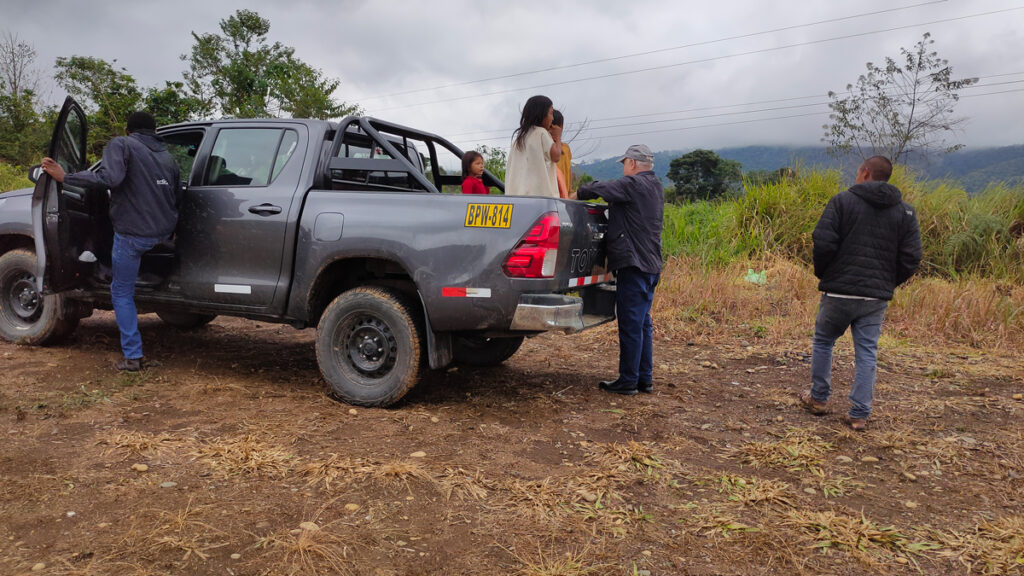
Once the meeting was over and after saying goodbye to the participants from the different countries, I left for Pangoa, a town in the Peruvian jungle where our CLM have been doing missionary support during their vacations, especially for school support in the indigenous communities.
There I was received by the Comboni community who welcomed me very well. I had the opportunity to meet again Fr. Maciek, whom we met in Poland where he was supporting the CLM, and Fr. Lorenzo, who until a few months ago accompanied the CLM in Spain. During the three days of my stay I was able to visit the different services provided by the parish, how they attend to the people coming from the different indigenous communities, the visit to the Daniel Comboni school, where I was able to share some time with the older students, the visit to the cultural center that is being built and that will undoubtedly help a lot to make known the reality of the indigenous communities and to promote meetings that will strengthen their culture.
On the other hand, we had the opportunity to visit some of the indigenous communities closest to Pangoa. The territory of the parish is immense and getting into it requires an all-terrain car with 4-wheel drive to avoid getting stuck in the mud or the use of canoes to reach the most remote communities.
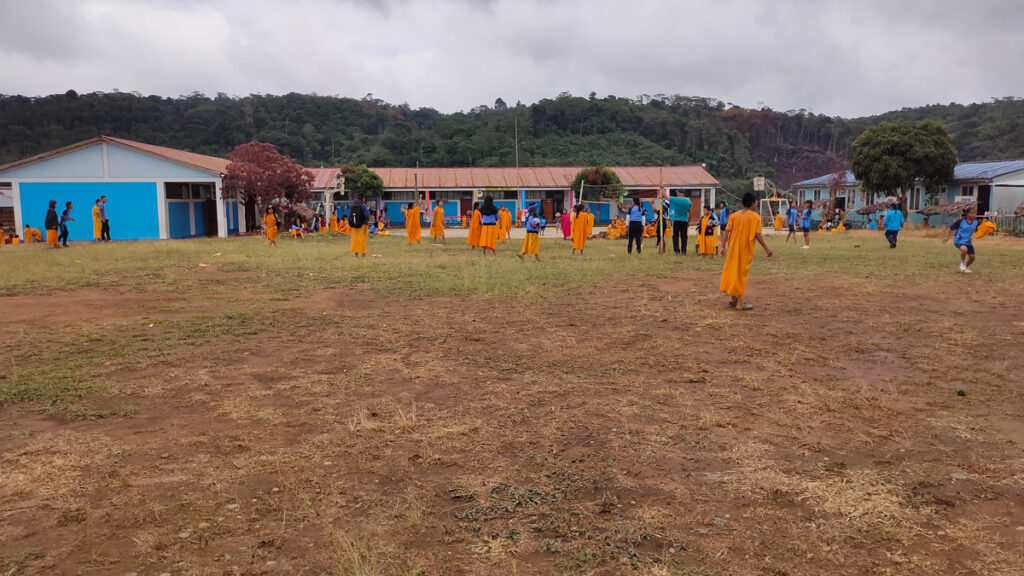
Pangoa is undoubtedly a parish full of needs and opportunities for missionary service. Who knows if one day we will be able to open an CLM presence in the area?
On the occasion of my visit we took the opportunity to organize a meeting with some people interested in becoming CLM. It was a small introductory meeting that we hope will serve as a seed that will later be nurtured and watered with missionary fruits in the area.
I leave you a video of the area recorded by the program Pueblo de Dios de España.
Kind regards
Alberto de la Portilla, coordinator of the CLM Central Committee.
Undoubtedly the continental meeting of the CLM of America held in Lima was a very special moment. Postponed for two consecutive years due to the pandemic. We were finally able to celebrate it and share how we are living our vocation in a reality that is trying to come out of the pandemic and recover from the consequences.
A meeting of this kind always serves to encourage us, to reflect together and to gather strength and new ideas for the imminent future that awaits us.
Once the meeting was over, as usual, to take advantage of the plane ticket, I had the opportunity to stay in the country and visit the places where we are present as CLM.
The first visit was to the neighborhood of Pamplona Alta where the CLM of Lima carry out a large part of their pastoral activity. This visit was made by all the participants of the continental meeting during the last Sunday. We divided into two groups and each group visited some of the communities that usually accompany our CLM brothers. The parish has a Spanish parish priest from the IEME and has the presence of the Comboni Sisters.
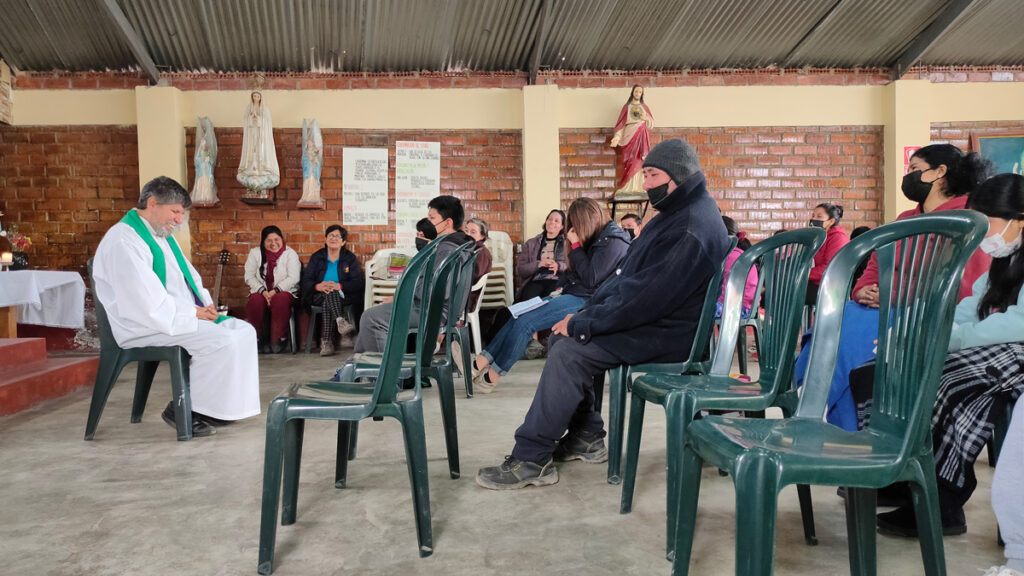
During the pandemic the work has been very hard, helping the communities to survive. The creation of numerous community kitchens has made possible the solidarity among all the members of the community and allowed many families to survive.
Here is a video of the area recorded by the team of the Spanish television program Pueblo de Dios. There we can see the extent of this work and the reality of these communities.
Kind regards
Alberto de la Portilla, coordinator of the CLM Central Committee.
It is the missionary spirit of the CLM´s of the American continent.
This beautiful morning, the CLM of Brazil during prayer invited us to open our hearts to be aware of what is happening in this common home that God has given us. We are very committed to put that grain of sand taking more care of it and to be making conscience in our environment.
On the other hand, we continue to be surprised by the exquisite food in Lima and the love with which they welcome us.
This day we evaluated the Rome agreements, to know how each country is complying with them and to get feedback from others; we emphasized the use of the international training guide and also the invitation of Alberto de la Portilla to explore and use the tools of our website. Many topics for improvement starting with the need to review and read the documents and tools that we have at a click in our blog.
It was also a very special day, today in the afternoon the Comboni Missionary Family CLM, MCCJ and Comboni Sisters had a moment together to share, today we honored the motto of our V continental assembly “United for a synodal church; at the service of the mission”.
After dinner we shared a delicious cake in celebration of Mama Mary’s birthday.
At the end of the night the CLM of Brazil shared with us through a video conference, different testimonies of CLM´s who have already had mission participation in and or out of their country.
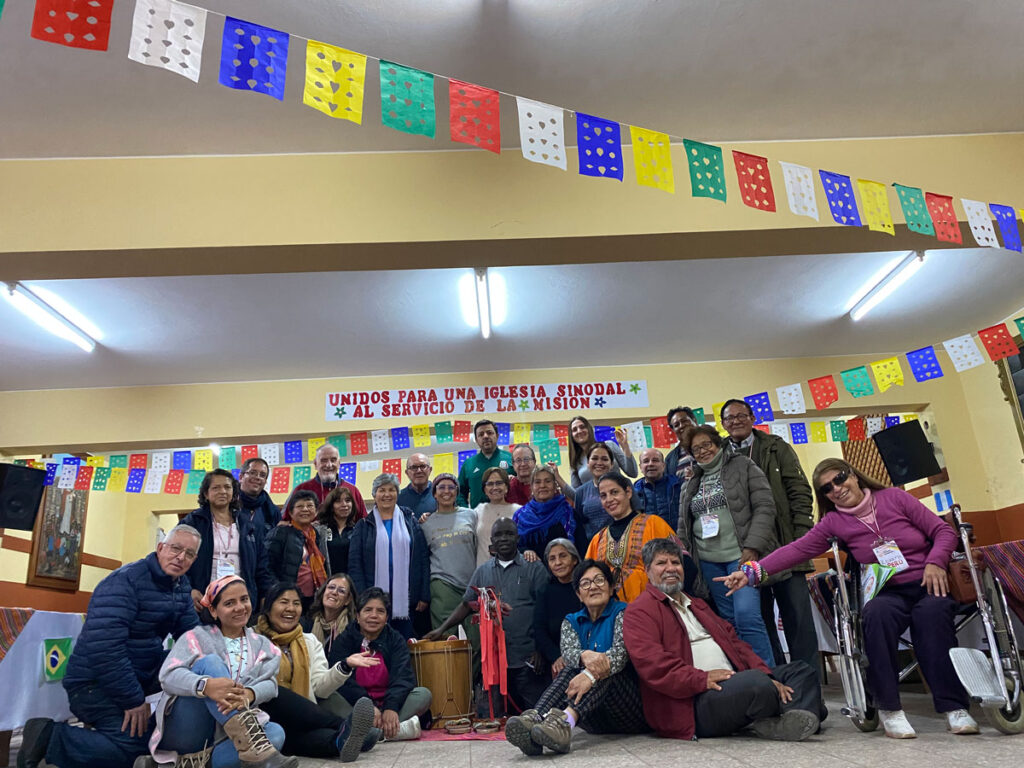
This motivates us to continue working together.
Janneth Sierra, CLM Guatemala
It has now been six months of our mission in Carapira, in the north of Mozambique. We would like to share with you about what our life looks like and what we do.
On March 1, we reach our place of work, the mission of Carapira. Long ago, it was planned that this village would become the seat of a diocese, so a church of impressive size was built. In addition to the would-be cathedral, there is also the Institute of Industrial Technology, founded by Combonians that attracts students from places located up to 150 km away with its reputation. Our responsibilities are divided between work in the institute (we are involved in the boarding school, secretariat, production, administration, agricultural part, library and computer room) and in the parish (we are members of the council for children and youth, vocations, education, Caritas and fraternal assistance and justice and peace). In addition, we prepare formation meetings for people from Mozambique who would like to become lay missionaries, we prepare adoration or sharing with the Word of God, we travel to distant communities (in our parish there are as many as 93 of Christian’s communities, sometimes traveling one way takes several hours, and the Mass, it is only celebrated once a year) and we have our household responsibilities. There is a lot to do and this is very good! The more responsibilities, the less time wasted, and the rest becomes a real respite.
As I mentioned, we experience a variety of problems. It was only a few weeks ago that the long-promised construction of a house for our community began. Until then, we live in the home of the Combonian missionaries. It also turned out that the repair of the car, used so far by our lay missionaries community, is completely unprofitable. This means that until we have the money to buy a new vehicle, the freedom of our work will be significantly limited.
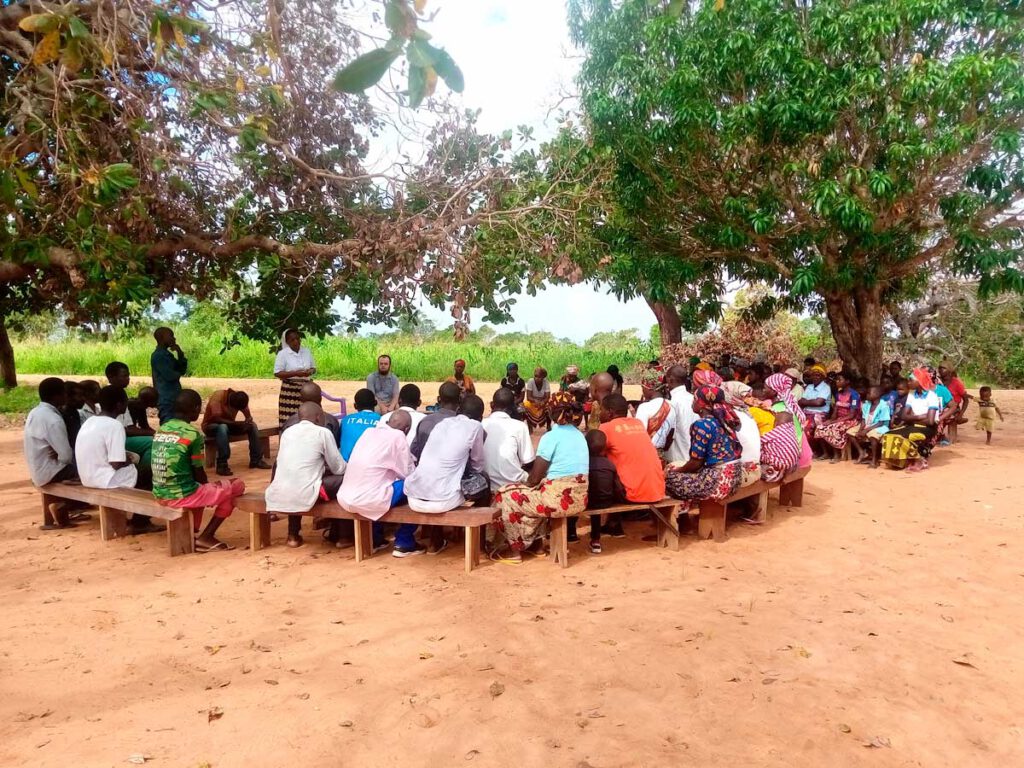
We also had health problems. In total, in our community, we have already caught malaria nine times. Three days after arriving in Carapira, I fell ill for the first time. I felt very weak, so I went to the local clinic to get a quick test that confirmed my illness. Apart from the alternating waves of chills and fever, I had no symptoms. I was sweating very intensely, and the mattress on which I slept looked like someone had spilled a bucket of water on it. After three days of taking medications, you recover, but your body is weakened, and you should spare yourself for the next few days. This disease was inevitable. The region we live has a lot of cases of malaria. The previous Polish lay missionary, Kasia, was sick here fifteen times in two years.
From 10 to 11 March, the province of Nampula, where we live, was struck by the powerful cyclone Gombe, which killed at least 61 people and completely destroyed 45,079 houses. The relatively low death toll is the result of previous meteorological warnings. In simple houses, mostly built of clay and wood, no one slept that night, anxiously waiting for the cyclone to come. From 9 p.m. there was no electricity and one could feel a strong wind, which grew stronger at two in the morning. It was in complete darkness that trees and roofs broke, walls crumbled and people looked for shelter in terror. In Carapira, only a few of the most solid buildings have survived. Meteorologists noted that the wind force was 190 km/h and that heavy rain fell, corresponding to a 20 cm layer of water. Water penetrated through the cracks in the doors, windows and the ceiling also into our rooms.
Although we were observing the power of the element, we were not aware of the extent of the destruction for a long time and the morning proceeded peacefully. Suddenly Father Jaider, clearly shaken, came running, saying, “Many buildings are in ruins. There are lots of women with young children near the church. They are shaking with cold. They need dry clothes. We have to help them! We have to find shelter for them, they cannot enter the church. ” These last words surprised me a lot. I understand that the church is a sacred space, but the situation is critical, why can’t they take refuge there?
There was no time to ask questions. We ran to our rooms to look for warm clothes. Jackets, sweatshirts, pants, T-shirts. We came to the mission with heavy suitcases, an opportunity came very quickly to share with the most needy. With meshes full of clothes, we ran to the temple. Drenched people chattering their teeth, little ones shaking with cold. I looked inside. Water poured from holes in the ceiling, and stone parts of the ceiling fell. Now I understood why these people could not hide in the church building …
We separated the women and young children and ran with them to the nearby buildings of the former school. There was water in all the rooms, but at least one of them didn’t rain. We handed out clothes, mothers wrapped children in our jackets, sweatshirts, jackets … All the time we could hear the terrifying sound of bent sheet metal, which the element was still trying to break. This school has become a temporary shelter for the most disadvantaged. With considerable effort and at a cost, the roof in the remaining rooms was repaired. We brought mats that you could sleep on. We managed to organize two hot meals a day. We distributed roof repair foil, flour and beans to those most in need.
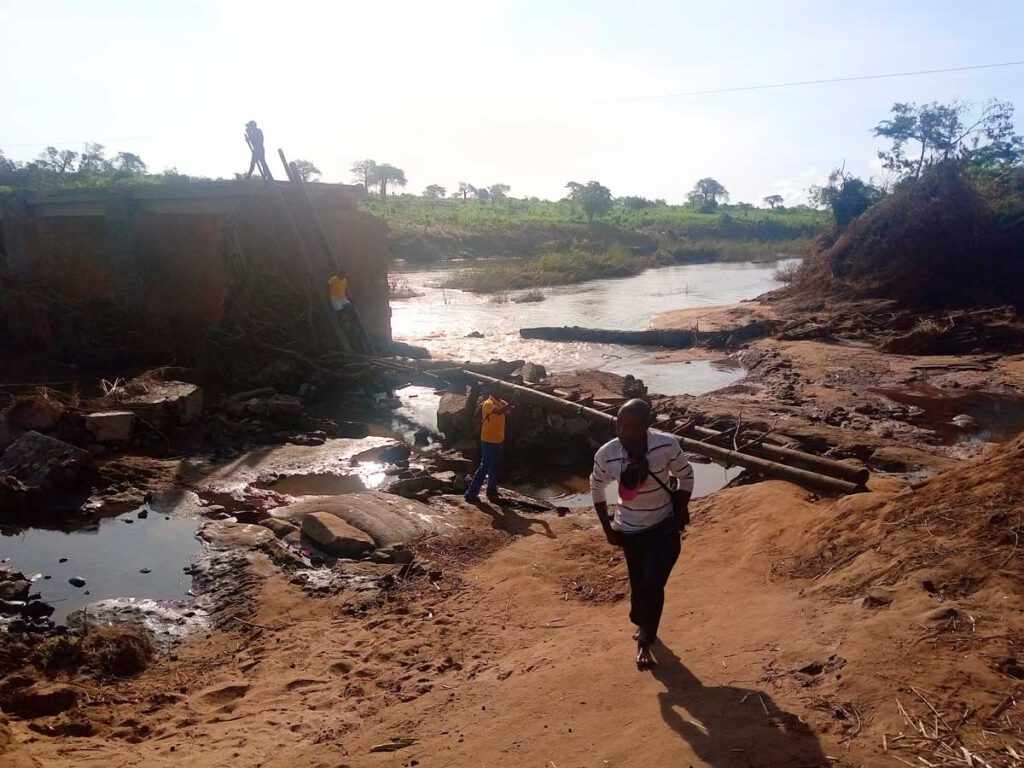
Many trees and an old, six-meter-long cactus fell down around the church. A group of teenage boys volunteered to help with tidying up the area. All the hot day they worked very hard with axes and machetes, carrying heavy branches and even cutting their hands. Their only payment was a cup of water with lemon juice and two cookies.
Five months have passed since the cyclone passed by the time you read this article. We are organizing a second wave of aid. We collected over 2,300 euros on the crowfounding portal. Together with people involved in the parish Council of Caritas and Brotherly Aid, we selected the most needy. It was not an easy task, as the local population is mostly very poor. We wanted to select people who are completely incapable of work and who cannot help themselves. We visited paralyzed, rheumatic, handicapped people, people with twisted limbs, undiagnosed diseases, amputees … They were very grateful for the few kilos of beans or cornmeal, for a blanket or mosquito-net, possibly some thin sheet metal to repair a broken roof. For those who can speak, we asked for a recording of thanks. They addressed people living somewhere in the unknown land of “Poland”, using hard-to-pronounce Polish names: “Piotr”, “Konrad”, “Mariusz”, “Pawel”, “Urszula”, “Wiesławie”, “Agnieszka”: ” thank you for your help ”.
People here live off of what will grow in small fields. Some cassava, some beans, some corn. This is enough for a poor diet. Meat or fish is a luxury. They work very hard, in heat and with simple tools, engaging even several-year-old children to help support their family. Your only chance to earn money is to sell some of your crops when the field is well fertile. Then they wander with 50 kg bags on their heads for many hours to the nearest market. In our village, a five-year-old boy swallowed a coin and an operation was required. His parents had to sell their piglets in order to get money for a trip to the city and bribes for doctors. Simple flip-flops or a used shirt at the market cost less than 1 EUR. Despite this, not everyone can afford such “excess”. Those who cannot afford it wear torn and worn clothes, sometimes barefoot.
Poverty, unimaginable for Europeans, and the lack of prospects do not break the Mozambicans. In the evenings they play music, humbly accept the hard life in all its fullness, react with undisguised joy when we greet them in the local macua language. It is worth remembering that another generation of our great-grandparents was in a similar situation. Various novels from the turn of the 19th and 20th centuries described similar poverty, the constant risk of hunger, illiteracy, superstition, difficult access to health care, and dependence on small plots. Today let us be grateful that our houses and flats have not collapsed, that we are not faced with hunger, that we can read and write, that we can heal our loved ones for free. May this gratitude always result in solidarity towards our hard-pressed sisters and brothers.
Regimar, Valmir and Bartek with kind regards